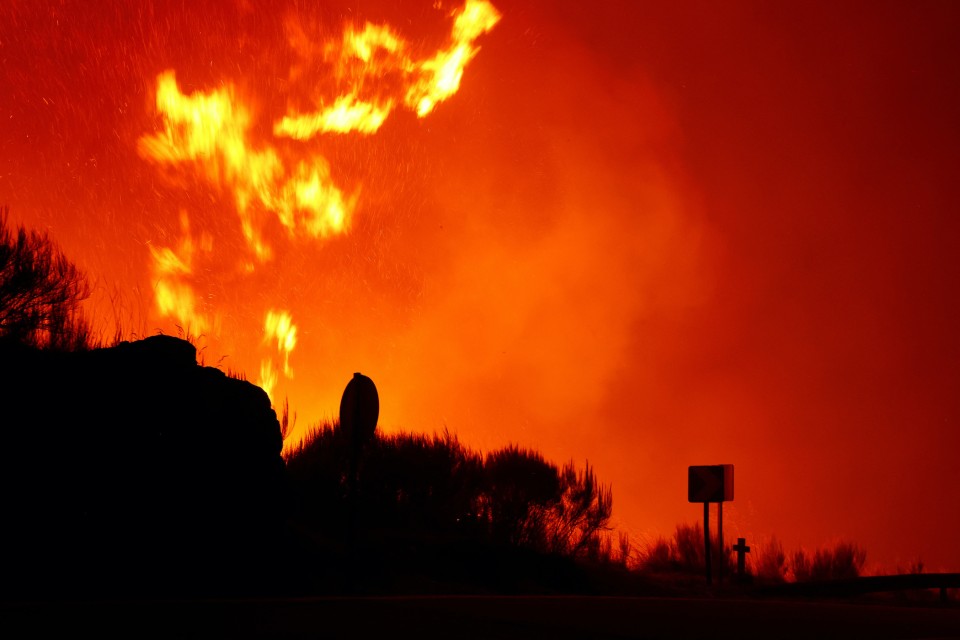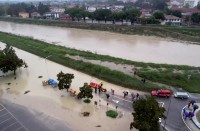
By Patricia Vicente Rua
LISBON (Reuters) – Portuguese police have arrested 14 suspected arsonists this week, who may have set some of the dozens of deadly wildfires raging across the country, contributing to the fire risks stemming from climate change and rural depopulation.
The blazes have claimed at least seven lives and destroyed houses, factories and tens of thousands of hectares of forest.
Prime Minister Luis Montenegro on Tuesday promised tough “repressive action” against such crimes “committed in the name of particular interests”, without specifying further.
Salvador Pinho Ferreira de Almeida, a Lusofona University professor specialised in civil protection, told Reuters there were strong signs of criminal activity, because many of the fires “started at night and it’s very bizarre to see so many outbreaks and so scattered”.
Researcher and criminologist Andre Inacio said arson was likely aggravating “a climate situation in which we have dry forests and very strong winds”, even if the first outbreaks may have been accidental.
“The new fires that started at dawn didn’t start by themselves. The prime minister did us a favour of saying what it really is,” he said, citing possible economic interests, such as the purchase of burnt wood or land at lower prices, as reasons for intentionally setting fires.
Other reasons include mental health problems.
One case study called “Forest Fires in Portugal in 2017”, showed that arson accounted for nearly 36% of the wildfires that killed 45 people in October 2017, about the same as negligent fire use, such as by farmers to clear land.
A 2019 paper by Portuguese researchers Jessica Rolho and Cristina Soeiro, who studied the behaviour of 260 arsonists – 90% of them male – showed that anger and revenge drove most to light fires, particularly women, while some 27% of the men used arson as an instrument for personal gain.
Experts also cited rural depopulation, which has led to overgrown vegetation covering stone barriers that used to serve as firewalls, saying the government needs to resume clean-up efforts that began after deadly 2017 fires.
“Not managing the landscape intensively enough is creating this explosive situation,” said Lindon Pronto, Germany-based fire management expert at the European Forest Institute, adding that no hefty investment in the fire response capacity would solve the problem.
(Reporting by Patrícia Vicente Rua, Andrei Khalip and Silvio Castellanos; writing by Andrei Khalip, editing by David Latona and Sharon Singleton)








